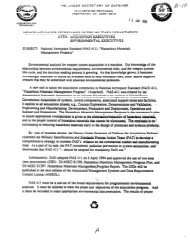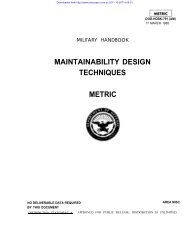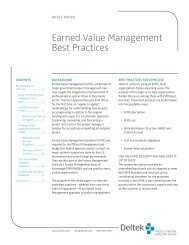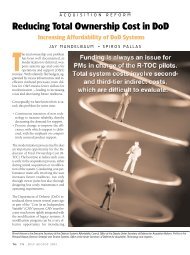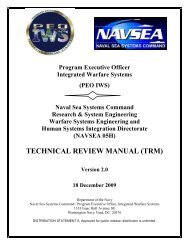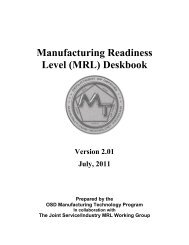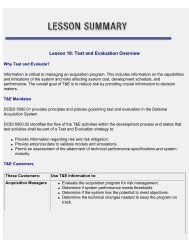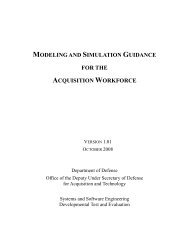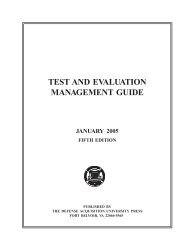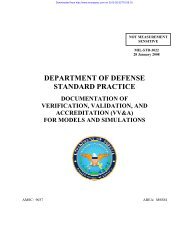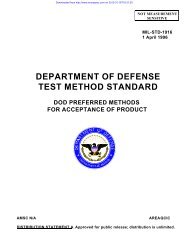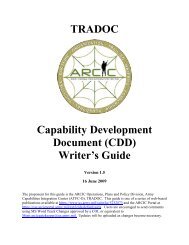MIL-HDBK-502 - Barringer and Associates, Inc.
MIL-HDBK-502 - Barringer and Associates, Inc.
MIL-HDBK-502 - Barringer and Associates, Inc.
Create successful ePaper yourself
Turn your PDF publications into a flip-book with our unique Google optimized e-Paper software.
<strong>MIL</strong>-<strong>HDBK</strong>-<strong>502</strong>: ACQUISITIONALOGISTICSwhole team to assess. Knowledge is power (but rather than being powerfor the individual it must be power for the team).Empowered team members.To be effective, team members must be able to make <strong>and</strong> keep agreements.Team members, then, must first be qualified to speak for their superiors<strong>and</strong> then must be empowered to do so. It also follows that team membersmust make their fellow team members aware of any limits to their ability tospeak for their principals. IPT agreements cannot be binding if they exceedthe limits of a member’s empowerment.Consistent, success-oriented, proactive participation.The members of an IPT should be drawn from those organizations thathave a stake in the outcome of the project. Although smaller teams (6-10individuals) are usually more effective than large teams, there should be noattempt to limit membership. Not having important functional areasrepresented on the team is worse than having a large team. As the programprogresses through the acquisition process members should be added orsubtracted as appropriate.Continuous “up-the-line” communications.An important responsibility that accompanies empowerment is the teammembers’ responsibility to keep their leadership informed. That means thatteam members must have adequate time to coordinate issues with theirleadership. (Surprising the boss is not an effective management technique.)Reasoned disagreement.Disagreements will arise in any team endeavor. If the team is to beeffective, disagreements must be based on alternative plans of action ratherthan on unyielding opposition to one plan with no alternative being offered.Issues raised <strong>and</strong> resolved early.Effective teams identify issues quickly <strong>and</strong> either resolve them internally orelevate them to a decision-making level where they can be resolved.Ignoring an issue in the hope that it will go away usually guarantees that itwill fester, <strong>and</strong> when it inevitably resurfaces, it will have become a majorproblem.9.2 LOGISTICIANS AND IPTSThis section addresses some special considerations for functional areaexperts in general, <strong>and</strong> logisticians in particular, who serve on IPTs.9-4




